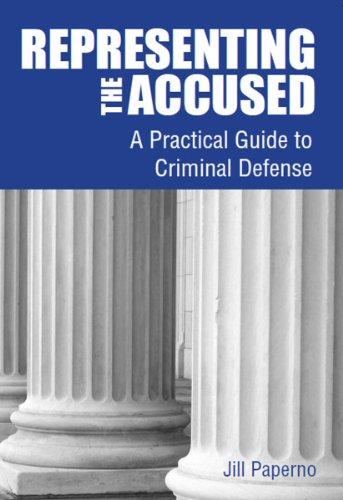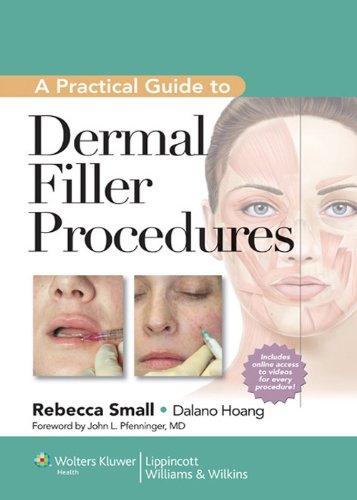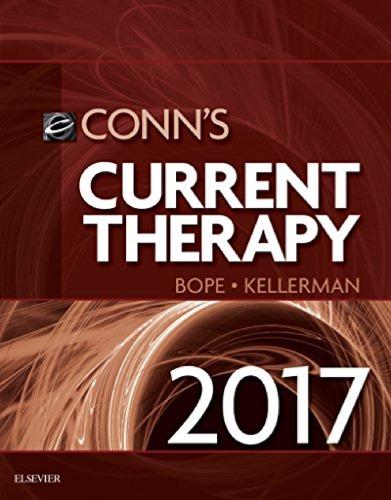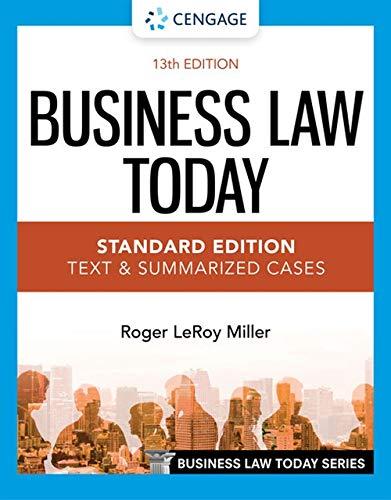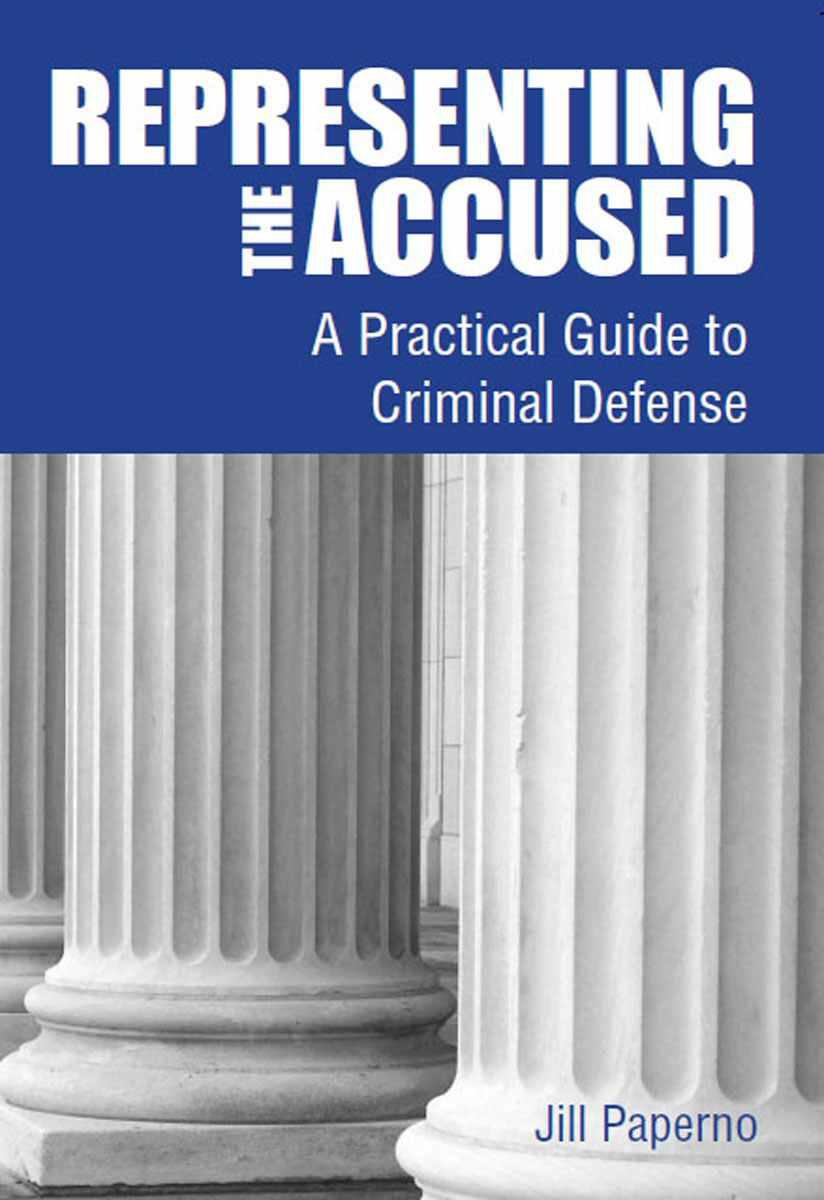https://ebookmass.com/product/representing-the-accused-a-
Instant digital products (PDF, ePub, MOBI) ready for you
Download now and discover formats that fit your needs...
Criminal Defense-Based Forensic Social Work 1st Edition
https://ebookmass.com/product/criminal-defense-based-forensic-socialwork-1st-edition/
ebookmass.com
A Practical Guide to Geriatric Neuropsychology Susan Mcpherson
https://ebookmass.com/product/a-practical-guide-to-geriatricneuropsychology-susan-mcpherson/
ebookmass.com
A Practical Guide to Dermal Filler Procedures Har/Psc Edition – Ebook PDF Version
https://ebookmass.com/product/a-practical-guide-to-dermal-fillerprocedures-har-psc-edition-ebook-pdf-version/
ebookmass.com
Conn’s Current Therapy 2017 Edward T. Bope
https://ebookmass.com/product/conns-current-therapy-2017-edward-tbope/
ebookmass.com
Therapeutic Modalities in Rehabilitation, Fifth Edition 5th Edition, (Ebook PDF)
https://ebookmass.com/product/therapeutic-modalities-inrehabilitation-fifth-edition-5th-edition-ebook-pdf/
ebookmass.com
Human Nature and the Causes of War 1st ed. 2018 Edition
John David Orme
https://ebookmass.com/product/human-nature-and-the-causes-of-war-1sted-2018-edition-john-david-orme/
ebookmass.com
Cowboy Firefighter Christmas Kiss (Smokin’ Hot Cowboys Book 5) Kim Redford
https://ebookmass.com/product/cowboy-firefighter-christmas-kisssmokin-hot-cowboys-book-5-kim-redford/
ebookmass.com
Business Law Today - Standard Edition: Text & Summarized Cases (MindTap Course List) Roger Leroy Miller
https://ebookmass.com/product/business-law-today-standard-editiontext-summarized-cases-mindtap-course-list-roger-leroy-miller/
ebookmass.com
My Skin Begs You Please ('90s Universe 1) MM 1st Edition
Leta Blake
https://ebookmass.com/product/my-skin-begs-youplease-90s-universe-1-mm-1st-edition-leta-blake/
ebookmass.com
The Russian Way of Deterrence: Strategic Culture, Coercion, and War Dmitry (Dima) Adamsky
https://ebookmass.com/product/the-russian-way-of-deterrence-strategicculture-coercion-and-war-dmitry-dima-adamsky/
ebookmass.com
Introduction
CONTENTS
Chapter 1: Types of Representation
Chapter 2: Organization: Files and Technology
Chapter 3: General Advice to Improve Your Practice
Chapter 4: The Life of a Case
Chapter 5: The First Interview
Chapter 6: Arrest, Arraignment, and Bail Procedures
Chapter 7: The Defense Theory of the Case
Chapter 8: Felony Practice: Probable Cause or Preliminary Hearings and Grand Jury
Chapter 9: Giving and Getting Information Part I: Discovery, Requests for Bills of Particulars, and Brady
Chapter 10: Giving and Getting Information Part II: Investigation
Chapter 11: Subpeonas
Chapter 12: Motions
Chapter 13: Hearings
Chapter 14: Pleas and Dispositions
Chapter 15: Trials
Chapter 16: Sentencing
Chapter 17: Conclusion
About the Author
Representing the Accused
A Practical Guide to Criminal Defense
Jill Paperno
©2012 Thomson Reuters/Aspatore
All rights reserved. Printed in the United States of America.
No part of this publication may be reproduced or distributed in any form or by any means, or stored in a database or retrieval system, except as permitted under Sections 107 or 108 of the U.S. Copyright Act, without prior written permission of the publisher. This book is printed on acid-free paper.
Material in this book is for educational purposes only. This book is sold with the understanding that neither any of the authors nor the publisher is engaged in rendering legal, accounting, investment, or any other professional service as a part of this book. Neither the publisher nor the authors assume any liability for any errors or omissions or for how this book or its contents are used or interpreted or for any consequences resulting directly or indirectly from the use of this book. For legal advice or any other, please consult your personal lawyer or the appropriate professional.
The views expressed by the individuals in this book (or the individuals on the cover) do not necessarily reflect the views shared by the companies they are employed by (or the companies mentioned in this book). The employment status and affiliations of authors with the companies referenced are subject to change.
For additional copies or customer service inquiries, please e-mail west.customer.service@thomson.com.
ISBN 978-0-314-28529-4
Mat #41333609
Aspatore Books, a Thomson Reuters business, exclusively publishes C-Level executives and partners from the world’s most respected companies and law firms. Each publication provides professionals of all levels with proven business and legal intelligence from industry insiders direct and unfiltered insight from those who know it best. Aspatore Books is committed to publishing an innovative line of business and legal titles that lay forth principles and offer insights that can have a direct financial impact on the reader’s business objectives.
Dedication and Acknowledgments
Dedication
This book is dedicated to the past and present members of the Monroe County Public Defender’s Office, who have always strived to provide highquality representation under the challenging circumstances inherent in public defense work, and to public defenders everywhere.
Acknowledgments
I would like to acknowledge the love and support of my family my husband, Les Scinta, my son, Alex Scinta, and my stepchildren, Nick and Beth Scinta. I cannot begin to express my appreciation for the help of my friend, mentor, and one of the finest lawyers and people I know, Brian Shiffrin, who was generous in time and suggestions for this book, and the Shiffrin family, who have become my family. And I want to thank the past and present members of the Monroe County Public Defender’s Office who have always provided each other with support, training, and encouragement and made the office a great place to come home to at the end of the day.
I would like to also thank Ed Nowak, the former Monroe County Public Defender, for hiring me and developing an office in which skill, training, and knowledge are valued, and Tim Donaher, the current Monroe County Public Defender, for continuing and expanding on the tradition of striving for excellence in our office and finding new and creative ways to enhance our practice. I would like to thank the members of Easton, Thompson, Kasperek, Shiffrin who exemplify the finest qualities of those who practice criminal law; Bill Easton, former supervising attorney of the Capital Defender’s Office in Monroe County, whose level of practice is one that many of us can only dream of, Don Thompson, my personal hero, who has successfully achieved exonerations for several of his clients, Larry Kasperek, whose fearless representation of his clients is the personification of the phrase “question authority,” and Brian Shiffrin, appellate attorney extraordinaire. Each one is always ready, willing and able to share their knowledge, experience and advice, and it is always valuable. Finally, I would like to thank every criminal defense lawyer, whether public defender or private attorney, who makes the effort to ensure that our clients
are treated with dignity and provided high-quality representation and that our colleagues receive support and guidance throughout their careers.
Introduction
I became an assistant public defender in 1987, before DNA was a tool used in criminal prosecutions, before computers were standard law office equipment, and well before the existence of cell phones, triangulation and pinging. Although the practice of criminal law has changed radically in many ways over the years, much of it is the same as when Clarence Darrow defended Leopold and Loeb. The science and technology may have changed, but the approach to handling cases is timeless.
I have been incredibly fortunate in having had the opportunity to spend my career in the Monroe County Public Defender’s Office, a wonderful public defender’s office, where training is valued and promoted. I was lucky enough to learn from an amazing group of defense practitioners who devoted their careers to representing the indigent, and ensuring that each person they represented received the same, or better defense than those who could afford to pay to retain counsel. As I became more experienced, I helped to develop our office’s training program, teaching younger attorneys in my office and in my community. Over time I have learned that teaching skills not taught in law school, such as how to work with clients, organize files and handle a caseload, is often as important, or more important, than rules of evidence and trial technique. Evidence and trial technique are skills we use periodically; case management and client skills are necessary every day.
In the following pages I hope to provide the beginning practitioner with information and advice often given by experienced defense attorneys to newer practitioners. In sharing this information, I hope to help less experienced attorneys, as well as law students practicing in criminal defense clinics, learn techniques and methods in handling criminal cases, and avoid the errors I made along the way (and sometimes still make). Most importantly, I hope to contribute to the improvement of the quality of defense services provided to those who do not have the opportunity to choose who represents them.
Although criminal practice differs from state to state, and between state and federal courts, there are many areas in which practice in all of these areas is similar. I will be attempting to provide you with general advice concerning
criminal practice, as well as some specific examples of issues that arise in criminal cases.
After you are assigned or retained on a case, you will find most cases follow a similar course. Although handling of cases varies from jurisdiction to jurisdiction, generally a case will start with an arraignment in which the client is told of the charges he faces and assigned counsel or given the opportunity to retain counsel. Generally, depending on the type of charge, a case may remain in a lower level court or move to a higher court, sometimes following presentation to the grand jury. There may be discovery procedures and motions filed. Some cases may be dismissed along the way. Eventually, in most cases, a client will have to decide whether to take a plea or go to trial.
The quality of a plea offer, whether a case will be dismissed, and the outcome at trial will often depend on the representation you provide to the client. Whether the client and his family and friends understand the process and reach a decision they can accept will also often depend on the representation you provide.
There are many ways that you can enhance the quality of your representation. You will develop some of these methods through experience. But there are some things you can learn immediately, such as how to handle the first meeting with a client, how to organize your files, and how to approach plea negotiations, which will improve the quality of your representation, your client’s experience, and your own.
Remember, this is general advice to help you develop and improve your practice, and is not based on a specific review of the statutes that apply to criminal law in your jurisdiction. This book is not intended to be specific legal advice for you to provide your clients.
Whether you accept all of the suggestions in the following pages, some, or none, you should be mindful of the decisions you are making as you handle your cases. Find systems and a style that work for you, and consider the choices available to you as you advance in your practice. Always remember that the person you are representing is facing frightening possibilities and a difficult process, and you are the person he is depending on to help him through it. If this work only causes you stress and frustration, consider finding something else that makes you happier. If you find joy in this work, it can be the greatest career you can ever choose, and you will likely be the
kind of attorney who cares about your clients and ensures that they are well represented. And that is what I wish for you and your clients.
Finally, the alternating use of the pronouns “he” and “she” are used in an effort to gain some gender neutrality.
1
Types of Representation
Why Criminal Defense?
There are many reasons that attorneys become criminal defense lawyers. Some choose criminal defense because they believe their work protects the rights granted to all by the Constitution. Some want to help those less fortunate. Some find the work exciting or want to gain experience in trial work. Others seek to fight governmental and police intrusion into citizens’ lives. There are those who enjoy the personal challenges and rewards of research, writing, courtroom work, negotiations, and the connections with clients. Some do it for many or all of these reasons, and some have their own. Whatever your reason, you will have to decide how you may choose to enter the field.
Decisions, Decisions
There are several ways an attorney can practice criminal defense. If you are a law student, you may be considering which of these ways might be best for you. If you are an attorney entering the field, you may also have these questions. Each form of criminal practice provides benefits and drawbacks. As you think about how you want to enter the field, you should give some thought to these pros and cons, as well as which type of practice best suits you.
Generally, attorneys practice criminal defense by joining a public defender’s or Legal Aid office, by picking up assigned counsel cases, or by handling cases in which they are retained by individuals in the course of their private practice. Attorneys in some jurisdictions may be part-time public defenders who also handle retained or assigned cases. Often, attorneys in private practice will handle both retained and assigned cases.
Gideon v. Wainwright
In the landmark decision of Gideon v. Wainwright, 372 U.S. 335 (1963), the US Supreme Court found that the failure to appoint counsel to an indigent
defendant in a criminal case violated the Sixth Amendment right to counsel. Because of this decision, states developed various ways to deliver mandated defense services.
In some states, there are statewide defender offices with uniform methods for appointing counsel to indigent defendants. In others, the determination of how to assign counsel is left to individual jurisdictions. In the federal system, there is a national Office of the Federal Defender. Other jurisdictions may have combinations of public defender, Legal Aid, or assigned counsel systems or other ways of providing indigent defendants with counsel. Which is right for you?
Public Defender or Legal Aid Offices
Generally, public defender offices are created by the local or state government, and attorneys are employees of the government. Legal Aid offices are private agencies that contract with governments to provide services. These offices may be full- or part-time.
Public Defender Offices
Public defender (PD) offices are created by local or state governments. The offices may employ part-time or full-time staff. The quality of representation in public defender offices may vary, depending on the funding provided by the local government, the relationship between the office and the prosecutor’s office and judiciary, and the commitment of the head of the office to provision of quality defense services. The best PD offices may provide the best opportunity to practice criminal defense. The worst, predictably, may provide the worst.
There are clear benefits and drawbacks to working in a public defender’s office. As a career defender in an office I consider among the best in our state, I am obviously biased in favor of public defense work. But I recognize the downside, as well.
Full-Time Public Defender Offices
The Pluses
For those who want to try cases and not be concerned with whether a client
can afford a trial, a public defender’s office is a great place to work. The direction of a case trial or plea is not dictated by what the client can afford. Instead, the client and attorney can determine whether a case should be litigated based on its merits.
A public defender generally has coworkers with varying levels of experience who may be used as resources and mentors. PD offices usually have both formal and informal training, supervision, and review, all of which help develop skills and expertise. There may be an appeals unit staffed by attorneys who can provide advice and guidance in handling motions, hearings, trials, and preservation for appeal. There may be office resources, such as motion and brief banks. Public defenders do not have to worry about overhead, hiring secretaries, malpractice insurance, and, generally, billable hours. (Sometimes PDs have to keep track of hours in certain cases.) PDs do not have to furnish an office. If you work in a PD’s office, it is likely that if you plan to take time off, there will be other staff who can cover your cases while you are out.
Because public defender offices are usually government offices, you may receive government benefits that you would not receive in the private sector, such as paid holidays, sick time, vacation time, and perhaps a pension. (When I started out, I simply wanted to do the work, but twenty-five years later, I have developed a healthy respect for pension benefits.)
As a full-time public defender, an attorney will have a steady source of income, as she is usually paid a salary. Public defenders generally practice in one area of law (criminal or family). They do not have to generate clients or worry about whether a client can pay enough to see the case through to trial. In other words, decisions about how to handle the case are not determined by whether a client has run out of money. As a result, a public defender may have the best opportunity to obtain trial experience.
As you practice in the courts to which you are assigned, you will have a great deal of contact and become familiar with the judges and prosecutors assigned to those courts. That will enable you to negotiate more effectively (or know when negotiations will be futile), to anticipate how the various parties will approach a case, and to understand what the probable best outcomes are in the cases in those courts.
Because it is likely you will handle exclusively one type of case (such as
criminal or family law), you will develop expertise and skill in that field faster than those in general practice or those who practice in several areas of law.
Public defender offices may have security, other personnel present when you are meeting with challenging clients, and ways of addressing concerns about difficult clients. In private practice, you may have to evaluate whether the office space you are considering accepting will ensure that you are safe when meeting with clients who may be mentally ill or threatening.
Perhaps one of the most important benefits of working in a public defender’s office is the likelihood that you will work with other attorneys committed to providing quality criminal defense. In a good office, the support of coworkers and day-to-day work make daily challenges easier to deal with and can create friendships that may last a lifetime. In such an office, when you return from court or the jail after a bad day, you will have many friends to sympathize, make suggestions, and help you. In criminal defense work, when you may encounter horror and tragedy as part of your daily work routine, the value of such esprit de corps is immeasurable.
The Minuses
If your office is a government office, difficult economic times may mean cutbacks and uncertainty in office resources.
As a public defender, you cannot choose which cases to accept and which to reject. Cases may be assigned to you based on your assignment to particular courts or on a rotation alternating with other staff. You may not be able to set your schedule. When you are appointed to a case, you may have to begin working on it, even if you have other work scheduled. Your caseload may be too high. You may be assigned to courts that are a distance from where you live or that have schedules that run late at night. Although salary may be steady, it is likely that your income may be lower than those who practice criminal law in the private sector. You cannot obtain greater pay for handling high-profile or complex cases. You may have supervisors advising you as to how you must handle a case. If you have a challenging client (and you will, no matter what type of criminal defense work you choose to do), you may not be able to discontinue representation.
Public defenders generally do not have luxurious offices. There may be a
shortage of office equipment and office supplies, and what the office does have may not be top-quality. If you are seeking to develop a practice involving diverse types of cases, it is unlikely you can do that as a public defender. Because public defenders often have many cases assigned to the same judge, relationships between PDs and prosecutors may involve a complicated balance, both adversarial and cooperative.
If you handle exclusively criminal cases, you will not develop familiarity with other areas of law. Of course, depending on your relatives, that might be a good thing.
If you do not like trying cases or are stressed by the process, then being a public defender assigned to a trial court may be a poor fit. When clients want to go to trial, and the attorney is reluctant, conflicts often result. Although there are many reasons not to go to trial, fear on the part of the attorney is not a good one.
If you do become a public defender, it will not be long before you hear one of the following lines:
• “I want a real lawyer.”
• “I know you work with the prosecutor.”
• “Public defenders can’t get jobs in other offices.”
To me, being a public defender is one of the most rewarding careers an attorney can have. It is important not to take these comments personally and instead put them in the context of our society, in which movies and television shows routinely show public defenders as incompetent, bumbling fools outplayed and outwitted by prosecutors. In that cultural context, it is natural for defendants to fear representation by public defenders. When confronted by these comments or the fearful questions of clients, I often respond that although I can tell them what kind of a lawyer I am, that would just be my words, and I could be lying. They will simply have to judge my work based on what they see and what they learn about me as I represent them. I assure them that I will work hard for them and do the best job I can for them.
Legal Aid Offices
Although attorneys handling criminal cases in Legal Aid offices may do the same kind of work under similar circumstances as those in public defender
offices, the Legal Aid attorneys work for a not-for-profit agency. The attorneys may be represented by a union and may have certain benefits, but they can differ from those offered to public defenders. Legal Aid offices also often handle non-criminal matters, such as housing, issues relating to public assistance, Medicaid and other entitlements, custody, and divorce. Attorneys may transfer from one unit to another, so there may be an opportunity to stay with the same office while exploring different types of work.
Both Legal Aid and public defender offices may limit the types of criminal cases they take. They may take only lower-level cases, such as violations or misdemeanors, but not felonies, or they may not take all felonies, such as death penalty cases, which may be handled by separate capital defender offices.
Assigned Counsel Work or Retained Cases
Assigned Counsel Work
If a client cannot be represented by a public defender’s office or Legal Aid office because the case is not the type handled by the local office, but the client is still entitled to counsel because he is indigent, he may be appointed assigned counsel. Additionally, if a defendant has a codefendant represented by the local Legal Aid or public defender’s office, that defendant cannot also be represented by the same office as the codefendant, as that would constitute a conflict of interest. In those cases, the court will also appoint assigned counsel. If a defendant represented by an institutional defender becomes a complainant in another case, the institutional defender cannot represent the person charged with committing a crime against the institutional defender’s client. In these cases, too, counsel will be assigned from outside the institutional defender’s office.
Counsel may be assigned in many ways. Courts may appoint individual attorneys, or attorneys may be appointed through assigned counsel panels. Assigned counsel panels also may be run in different ways. The local or state government, in meeting its obligation to provide counsel to the indigent, may have created an office of assigned counsel. Or the program may be administered by the local bar association. As with public defender and Legal Aid offices, the quality of assigned counsel panels may vary and may depend on the rules that govern criteria attorneys must meet before they can become
members of the panel.
Some assigned counsel panels divide attorneys by level of skill and experience. To join an assigned counsel panel, you will have to be admitted to the bar and, depending on the program requirements in your jurisdiction, may have to fill out an application, interview with the administrator of the program, and perhaps undergo training and/or continuing legal education courses (CLEs).
Attorneys who handle assigned counsel work may have their own solo practices or be members of firms. Their caseloads may comprise a large number of assigned cases or a small number. As with other ways of practicing criminal law, there are both positive and negative aspects to handling assigned cases.
The Pluses
As an assigned attorney, you have some discretion in determining which cases you choose to accept and which you do not. If the assigned counsel panel in your community is divided into different types of cases, you may choose to sign up for a felony panel or handle only misdemeanors. If you are in private practice, you may choose to handle other types of cases in addition to assigned cases. You will have greater say over your office setup and how you run your practice.
Assigned counsel attorneys who handle many cases often develop the familiarity with judges and prosecutors that public defender or Legal Aid attorneys have and can therefore anticipate pleas and how the cases may be handled by the other players in the court.
The Minuses
As an assigned counsel attorney, you will have to monitor your hours closely, as it is likely you will be paid by the hour. The hourly cost may be limited by the hourly amount set by the assigned counsel plan in your area. There may be caps on the amounts paid for particular cases, so that even if you do a great deal of work on one case, you will not be paid beyond a specified amount.
You will have to be available to accept cases when you are called, or you may eventually not get the calls. If attorneys are appointed by the judges in
your jurisdiction, you may find that judges will assign attorneys who do not fight as hard for the clients or attorneys they are more familiar or friendly with. (This is by no means a suggestion that you do not fight for your clients!) Working in an office that does not specialize in criminal defense or practicing on your own will not provide you with the type of training, supervision, or review by more experienced attorneys that you are likely to receive in a public defender or Legal Aid office.
Once appointed on a case, an assigned attorney generally has to keep the client, even if they do not get along well. As with public defender or Legal Aid cases, assigned cases may pop up even when the timing is inconvenient.
Retained Cases
Many attorneys practice criminal law by handling only retained cases. A client or family member contacts the attorney or firm and agrees to pay a certain amount of money, either up front or through the course of the case. The best-known private attorneys can command huge retainers, while most attorneys receive far less.
Many private attorneys start out as public defenders, Legal Aid attorneys, or prosecutors to gain experience in criminal law before embarking on a career in private practice.
The Pluses
If you accept cases on a retained basis, you may choose which types of cases to take. If a client does not seem to be someone you will get along with, you can choose not to accept the case.
As a retained attorney, you may have the greatest opportunity to increase your income. But you will be competing with the better-known attorneys in the field.
The Minuses
Often, it is hard for the less well-known or newer attorneys to gain the reputation necessary to develop a large client base. It may be hard to compete with the firms that advertise or the better-known criminal defense lawyers. As with private assigned counsel, retained counsel may also lack the training and supervision to assist in the development of skills and expertise.
Privately retained attorneys often have to work to develop a clientele, whether by deliberately increasing social and professional contacts, networking, or handling other types of cases that eventually generate a clientele with criminal cases.
A Word of Caution
Whichever way you choose to enter the field of criminal defense, you must make sure you are qualified to handle the cases you are assigned. Not only are you obligated by the code of ethics and professional responsibility that governs attorneys’ conduct in each jurisdiction, but also there are practical reasons not to accept cases you are not yet prepared to handle.
First, remember that a human being will suffer from the results of representation by someone who is not sufficiently knowledgeable or experienced to handle a case. Incompetent representation will harm clients in many ways perhaps losing the opportunity to attend school or maintain employment, or perhaps losing money, reputation, and even liberty.
Second, if you are handling a case you are not qualified to handle, you will find the work frustrating and confusing. Whatever attracted you to the work at first will quickly give way to stress.
Third, if you handle cases incompetently, you will gain a reputation among judges, attorneys, and potential clients that you do not know what you are doing. That is likely to affect your ability to obtain cases in the future if you are assigned or retained, or to be promoted and advance in your career if you are a public defender or Legal Aid attorney.
Questions to Ask Yourself
As you consider how you want to practice criminal law, ask yourself the following questions:
• Do I want to work independently, or do I prefer structure and supervision?
• Do I want to choose my office setting and coworkers, or will I enjoy a larger institutional office?
• Do I want the ability to accept or reject clients and cases?
• Do I need a salary or will I be comfortable with the ebb and flow of assigned or retained cases?
• Do I want to spend the time and effort generating a clientele?
• Do I believe I can handle a large caseload, which involves organizational skills and multitasking?
• Do family or other factors necessitate my controlling my own schedule?
• Do I want to practice only criminal law, or do I want to handle a variety of types of cases?
What to Know Before Applying
If you are applying to a private firm, Legal Aid office, or public defender’s office, consider doing a little investigation before applying. Try to find out what the reputation of the office is from prosecutors and defense attorneys in the area. Look at the website and determine whether the office appears to emphasize training and education. Do staffers teach at CLEs? Does the website contain resources, motions, or other information that reflects the quality of the work done by the office?
If the office prepares an annual report, look at it. How many cases does each attorney handle? Is there an opportunity for advancement? How many trials do the attorneys handle each year, and are they bench (judge-decided) or jury trials?
What types of support staff exist? Does the office have investigators? Social workers? Paralegals and secretaries?
As with any other office, you may also wish to learn about salary and benefits.
What to Ask at the Interview
When interviewing for a job, you will likely be asked whether you have any questions for the interviewer(s) at the end of the interview. You should ask questions, not just to obtain information, but also to let the interviewers know you are thoughtful and interested in the work. There are mixed opinions about whether to ask about the particulars of salary and/or benefits, but the
interview committee in our office never held that against anyone. Questions that might help you decide whether the office is a good fit and help the interviewer(s) decide whether you are a good fit may include:
• What opportunities are there for continuing education?
• Is the office accredited to provide accredited CLEs?
• Is there a system of mentoring or training for new staff?
• How are new staff oriented?
• Are there training materials you can review before starting?
• How many cases are handled by attorneys each year?
• What is the range in the number of cases each attorney tries?
• How are caseloads divided?
• What is the typical schedule and caseload of each attorney? (In other words, how many cases are you likely to be handling at any one time?)
• How long have the interviewers worked in the office? What do they like about the office?
• How soon is it likely that you will be handling hearings or trying cases?
• What type of supervision will you have?
• Are there motions, briefs, or other resources available in the office?
If you are applying for a position with a private firm, you may wish to ask questions about how you maintain and report records of billable hours.
Of course, keep your questions to just a few minutes. It is likely the interviewers have other applicants waiting.
Organization: Files and Technology
Although a career in criminal defense may be one of the most exciting ones you can select, there are certain kinds of excitement you want to avoid the excitement of being unable to find an important document or a particular file, for example. Thus, one of the keys to a successful practice is developing the less exciting skill of organization.
Organization is necessary at every level of your practice from the organization of your entire caseload or office to the organization of your individual files. Although this subject may be less interesting than crossexamining the snitch in a murder trial, the foundation of every good practice, every good trial, and even every good cross-examination is organization.
A Word About Case Management Systems
Because this book is not focused on how to open and run a law office, but instead directed toward beginning criminal practitioners, I will not discuss case management systems extensively. But it is important to discuss the purpose and need for case management systems.
Whether you are practicing in a private firm or a public defender’s office, it is highly likely that the office will have a system for tracking open and closed files. A case management system will enable attorneys in a law office to track the progress of cases and clients, as well as determine whether there are conflicts of interest. It may allow attorneys to generate form correspondence, file labels, and other types of computer-enabled tools. It will also enable you to retrieve closed files. Of course, as with any computer system, the success of the program depends on the quality of the data entered.
One of the most important uses of a case management system for large offices is to ensure that the office is not representing clients with conflicting interests. A law office must develop policies for determining when conflicts of interest exist in cases. For example, a conflict will exist in representing more than one codefendant when there are codefendants in a criminal case, or
when the office represents a complainant in one case and the defendant accused by the complainant in another matter. For these reasons, the office must have a system in which parties’ names may be entered, and their roles in the cases may be designated with a code. The system must be searchable so that potential clients’ names may be entered and compared with names already in the system to determine whether there is a conflict of interest prior to assuming representation. New cases must be searched to ensure that players in the cases, such as witnesses and complainants, are not current clients of the office.
There are organizations that assist public defense agencies in developing case management systems. One example is the New York State Defender’s Association. The National Legal Aid and Defender Association can provide information on case management systems, as well. If you practice in a private firm, an Internet search for legal case management systems will provide numerous options.
Whatever system you use, it will be useless unless every case, without exception, is opened and entered into the system. Therefore, one important rule is that if you represent someone in any matter, even a low-level, noncriminal offense, make sure you open a file and enter it into the case management system.
File Management
The purpose of file management is to ensure that you are always prepared for court appearances. You should always have your file (or relevant portions of your file) with you in court on scheduled dates. You should always have filings, such as motions or memoranda of law, submitted by the courtscheduled deadlines. You should always have taken whatever steps are necessary to prepare for the next date obtaining verification of treatment, discussing plea offers with clients, etc. You should always be able to determine from your file what occurred on the last court date and what is scheduled to happen on the next date. Effective file management ensures that this happens, at least most of the time. We all make mistakes every now and then, but you do not want to be the lawyer who is known for missing dates, failing to file on time, or failing to discuss plea offers with your clients. You must have a system for handling each file. The system must include how
you mark the file, how you review the file for conflicts, what documents must be included in the file, and how you store the file. A file maintenance system will ensure that you know what is going on with each file and that you can retrieve contents of your files. It will enable others to stand in for you when you are out sick or unable to appear in court. A good system will make you appear to be knowledgeable and confident about your case before judges, prosecutors, and juries.
The initial steps you take with a file may depend on how you received the file. If the file was opened and the client was in custody, your handling of the file may differ from one in which the client is out of custody. The file in a retained case will differ from one in an assigned case. The timing of when you receive a file will also dictate the initial steps taken with a file. Of course, if you work in an office with standardized file procedures, you must follow the office’s policies.
Types of Files
If you work in an office in which the office management selects the types of files to use, you will not be able to choose the type of file you use. But if you do have to select, consider the options you have. As discussed below, file size and type, such as whether files are letter size, legal size, folder or pocket type, can affect your ability to organize the file.
File Size
Whichever style of file you choose, make sure your files are at least legal size (8½ inches by 14 inches). If you use legal pads, then you will want to make sure the file can hold a piece of paper without the paper protruding or being folded. Also, you will sometimes receive documents that are larger than letter-size, and you will want the file to be able to accommodate them. Of course, make sure your filing cabinets can accommodate the size of the files you use.
Some people choose manila-type file folders for handling cases, with a protruding area on the rear of the file that can be used to label it. These are a less expensive choice than other files, but papers can easily fall out of the folders. Although some people choose to use clips to fasten documents to the file, there are several drawbacks to that choice. The cost of the clips will increase the overall cost of the system. The documents will not be easily
accessible. And you will have to punch holes in documents, which damages originals.
If you and/or your office can afford it, you should use pocket files or wallet files with expandable bottoms, which enable you to slide documents in and out with ease. Pocket files do not have a flap that goes over the top. Wallet files do.
As you continue working on a case, a file may grow beyond the size of its original container. At that point, you may choose a larger type of file, such as a larger pocket file that expands on the bottom, in which you can place file folders. Cases that are complex or that proceed to hearings or trial may require the use of a box and/or trial notebook. These choices will be discussed below.
Pre-Printed Files?
File choices also include whether to have the files printed to suit your office’s needs. This, too, adds to the price of the files, but the ability to find information easily on the file will save time in searching for the information. Choices may include whether to have lines printed on the files to note court dates, events, and other important information. If your files are not preprinted, you may wish to print and staple a file front that you can use to record information, though that may be more prone to tearing.
The Outside of a File
Files should be easily retrievable; therefore, you should keep the client’s name on a label or tab at the top of the file, so that when the file is in a filing cabinet, the name can be seen easily. The address and phone number for a client must also be easily accessible, so that you can write or call the client without having to dig through the file.
The court handling the case and the names of the judge of the court and the prosecutor may also be information you wish to record toward the top of the file.
The file should have an area in which you enter the date of each appearance and what happened on that date. This might be done by having lines along the front of the file and a column in front of each line for entries. The first date

